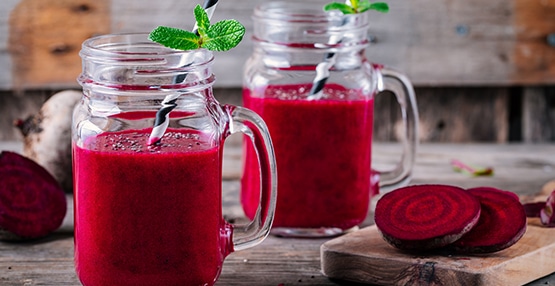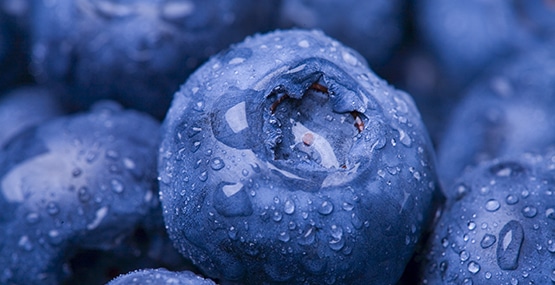
How to Choose a Plant-Based Formula for Your Child
No animals were harmed in the making of these high-calorie nutritional beverages. Your body thanks you.
-Like Friends and black, plants are back!
Plant-based eating is having a moment, and for good reason: The health benefits are profound.
In fact, eating more plants and fewer animal-based foods may lower your risk of heart disease and other chronic conditions, help you maintain a healthy weight, and slow (and in some cases reverse) the progression of diabetes and coronary artery disease.
Result: Parents seeking oral or tube-feeding nutritional support for their kids are increasingly reaching for plant-based formulas. Problem is, with so many options, how do you choose?
We asked Bailey Koch, RD, CSP, LD, a registered dietitian who's board-certified in pediatric nutrition, to whittle the list to five. Here are her favorites, in no particular order.
PediaSure Harvest
Best for: Kids who need to gain or maintain weight and aren't allergic to soy
Harvest has no gluten or lactose—common root causes of food intolerances in children—or genetically modified organisms (GMOs). It's mainly for tube-feeding, but those who like "green juice" may find it palatable, says Koch.
Because the protein source is milled whole grain brown rice, Harvest provides complete nutrition. That's a fancy way of saying it contains all the amino acids of an animal-based protein, along with the fats, carbs, and vitamins and minerals that kids need.
Quick primer on amino acids: Your body needs them to function, and nine of them come only from food. Animal proteins contain more than enough, but plant proteins are often missing some—or don't have enough to meet your daily nutritional needs. If your child is on a vegetarian or vegan diet, a formula that provides complete nutrition can ensure he or she gets all the key nutrients.
Harvest is made from fruits and vegetables (banana, spinach, mango, carrot, and pumpkin) and, though it's meant for tube feeding, kids can drink it too.
Harvest does contain soy protein isolate and soy oil. For that reason, children with soy allergies or intolerances should look at other options on this list, says Koch.

Kate Farms Pediatric Standard and Pediatric Peptide
Best for: Kids with gastrointestinal conditions who are struggling to gain or maintain weight
At 3 grams of fiber per serving, these two non-GMO beverages have the most of any formula here. That's especially helpful for kids with gastrointestinal conditions because it keeps them regular, says Koch. The fiber will also help them stay full longer.
The foundation of these complete nutrition formulas is pea protein. They also feature a vitamin and mineral blend and lots of phytonutrients, including extracts and concentrates from broccoli, turmeric, acai, blueberry, and beet. They can be used orally or with tube feeding.
Kids often like the vanilla or chocolate (Standard only) flavors, while parents appreciate that the formulas come in different calorie strengths.
Koch says these formulas are great for kids with food allergies, because they have no dairy, soybeans, gluten, or corn. She adds that formulas like these, with a consistency like milk, can be helpful for children who have difficulty with constipation and tolerance of these high-calorie feeds.
The newly released Pediatric Peptide formula is an option for those with digestive problems.
Compleat Pediatric and Compleat Pediatric Peptide
Best for: Kids struggling with digestion or who are gaining weight too quickly
Designed for tube feeding, these formulas are non-GMO and have none of the major food allergens, including dairy, soy, wheat, and nuts.
Several of the products are peptide-based, with proteins partially broken down for easier digestion.
The reduced calorie version is a great option, says Koch, for kids who are gaining weight too rapidly, allowing them to reduce daily calories and still get all the nutrients they need.
It's made from real-food ingredients, says Koch, though it does include chicken so it's not entirely plant-based.
Compleat Pediatric Organic Blends
Best for: Kids with feeding intolerance
Unlike liquid formulas like Kate Farms or PediaSure, Koch says Organic Blends has a cream-soup consistency, which children with feeding intolerance may find helpful.
Feeding intolerance happens when a child has a negative reaction after a tube-feeding, such as abdominal pain, bloating, vomiting, or gas. Since the blended foods of this formula are thicker, they're less likely to come up and as a result, thus helping ease those symptoms, says Koch.
There are two options: a plant-based version as well as one with chicken. Both are for tube-feeding only—and like all these specialty formulas, intended for use under medical supervision.
Nourish
Best for: Children with chronic GI issues or those on a keto diet
Nourish, which also has a thicker consistency, is non-GMO and free of dairy, soy, gluten, and corn. Among the protein sources are garbanzo beans, green peas, whole grain brown rice, and quinoa. It also has a blend of broccoli, kale, turmeric, and ginger as the source of its vitamins.
There's also a Nourish Peptide formula that includes MCT oil for those with intolerance to whole proteins or problems with absorption, according to Koch.
Another option is the Nourish Keto Peptide formula, a high-fat, low-carb formula (84% fat, 4% carbs, and 12% protein) that may benefit children with epilepsy or who are undergoing chemotherapy.
It can take some trial and error to find the best tube-feeding formula for your child, Koch says, adding that what works for one child may not work for another, even if they have the same symptoms.
She recommends seeking the advice of a registered dietitian, especially one familiar with pediatric nutrition and type of medical issues your child may be facing.
This story has been medically reviewed by Stan Cohen, M.D., a pediatric gastroenterologist at the Children's Center for Digestive Health Care in Atlanta and the director of Nutrition4Kids Medical Advisory Board.



